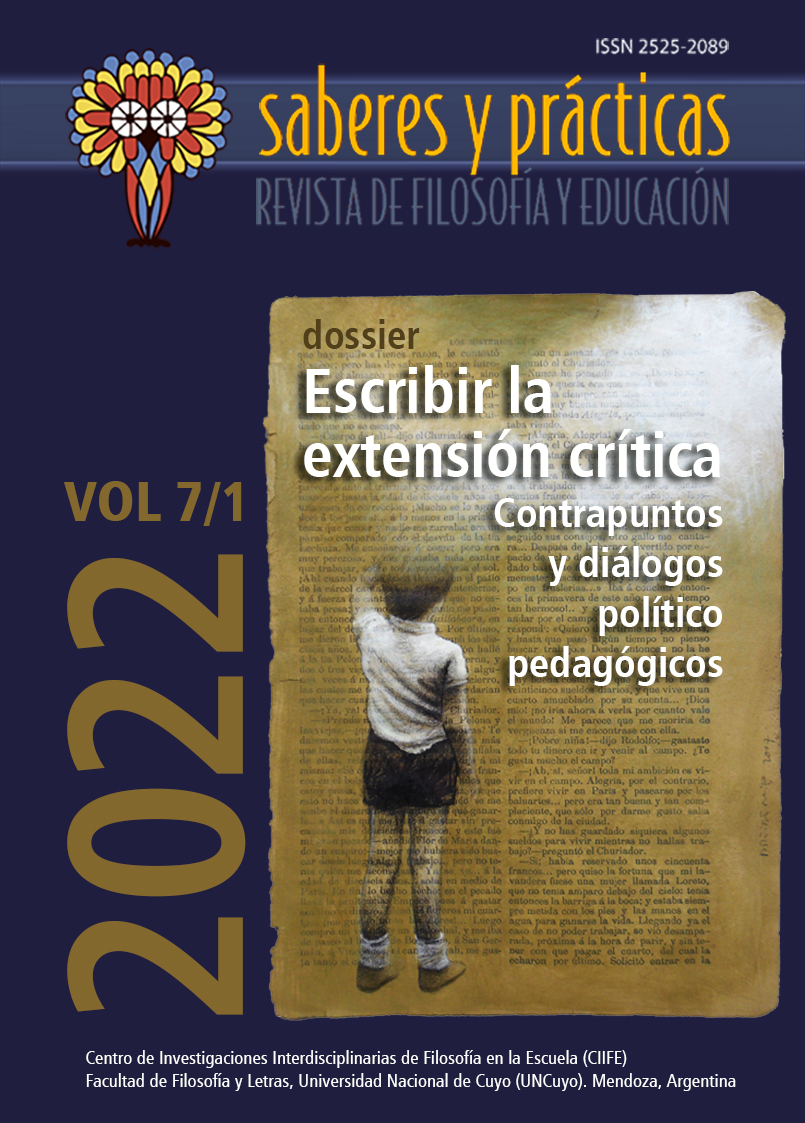Teaching Ethics in High School
Teaching Intervention Based on The Competency-Based Approach and Phronesis
DOI:
https://doi.org/10.48162/rev.36.048Keywords:
High school education, Philosophy teaching, Competency-based approach, Teaching practice, Teaching strategiesAbstract
A report is presented on a teaching intervention for the teaching of ethics in Higher Secondary Education through the competency-based approach. First, the authors contextualize and problematize the report in the framework of the Integral Reform of Higher Secondary Education that took place in Mexico in 2008, in order to observe the curriculum changes in all the study plans of this educational level and to point out the place of ethics as a subject in this subsystem and the challenges of teachers facing these changes. Second, they introduce the theoretical principles of the competency-based approach, as well as a philosophical perspective on the teaching of ethics based on phronesis, which from an Aristotelian perspective is translated as prudence, as a model of ethical being. Third, they expose a didactic design together with the results that show the experiences of the teacher in the classroom, the work of the students and the outcomes of the learning processes. Finally, they analyze the impact of the competency-based approach in the teaching of ethics, pointing out the difficulties and limitations, but also the possibilities they offer for the teaching work when linked to wider philosophical conceptions.
Downloads
References
Aristóteles (1985). Ética Nicomáquea - Ética Eudemia. Gredos.
Bellocchio, M. (2009). Educación basada en competencias y constructivismo. Un enfoque y un modelo para la formación pedagógica del siglo XXI. ANUIES.
Beuchot, M. (2007). Phrónesis, filosofía y educación. UNAM.
Bracho, T. y Miranda, F. (2012). “Situación actual y reforma educativa”. En La educación media superior en México: balance y perspectivas. FCE.
Cepeda Mayorga, I. (2014). Adela Cortina, Las raíces éticas de la democracia. Horizontes Filosóficos: Revista De Filosofía, Humanidades Y Ciencias Sociales, 1(1), 201–204. Recuperado a partir de http://revele.uncoma.edu.ar/index.php/horizontes/article/view/269
Calderón, C. (s/f). “Por un bachillerato público moral”, s/d.
Cifuentes, L. M., Gutiérrez, J. M. (2010). Introducción. En Cifuentes, L. M., Gutiérrez, J. M. (coords.) Didáctica de la filosofía (pp. 5-10). GRAÓ.
Nicol, E. (1994). Del Oficio. Boletín de Filosofía y Letras N°. 1, UNAM.
Marzo, L. y Sabariego M. (2013). Rúbricas para la evaluación por competencias. En Alsina, J. (comp.), Cuadernos de docencia universitaria No. 26. Ediciones Octaedro.
Morado, R. (2008), La enseñanza de la filosofía en la Reforma de la EMS, UNAM en http://www.filosoficas.unam.mx/~morado/Cursos/08FilEdLog/Zacatecas/Zacatecas.html
Nussbaum, M. (2003), La terapia del deseo, traducción por Miguel Candel, Barcelona, Paidós.
Sánchez, A. (1990). Filosofía y circunstancias. Ánthropos.
Secretaría de Educación Pública (SEP) (2008). Competencias genéricas y el perfil del egresado de la educación media superior. SEP.
Secretaría de Educación Pública (SEP) (2011). Reforma Integral de la Educación Media Superior. SEP.
Secretaría de Educación Pública-Colegio de Bachilleres (2014). Programa de asignatura: Ética. SEP.
Vargas, G. (2010), El papel de la educación en los cambios estratégicos de los grupos de poder en México (estudio introductorio). en Educación por competencias ¿Lo idóneo? Editorial Torres Asociados.
Published
How to Cite
Issue
Section
License
License
This work is licensed under a Creative Commons Attribution-NonCommercial-ShareAlike 2.5 Argentina License.





















